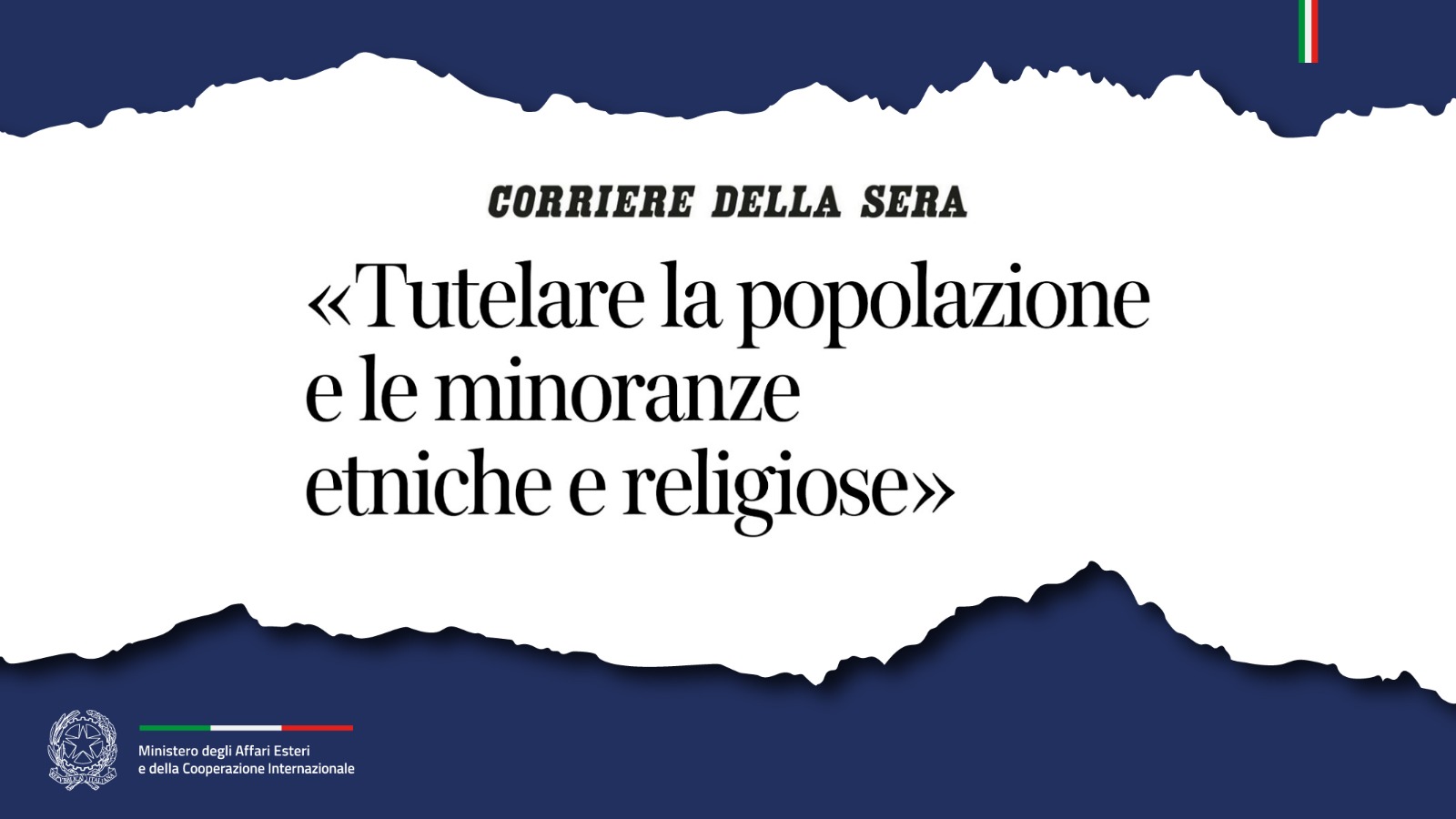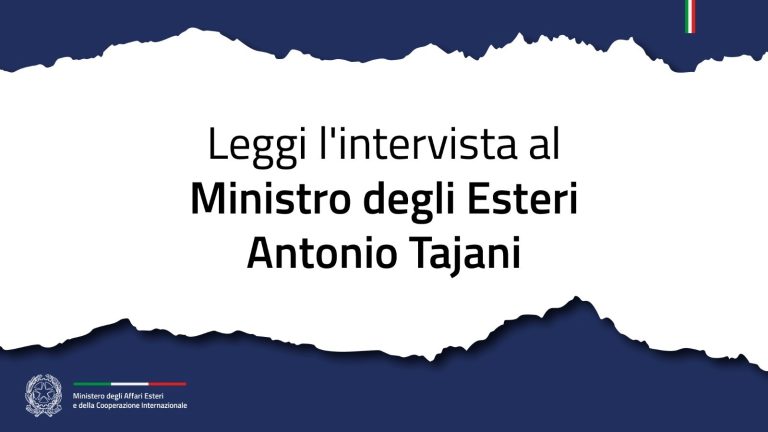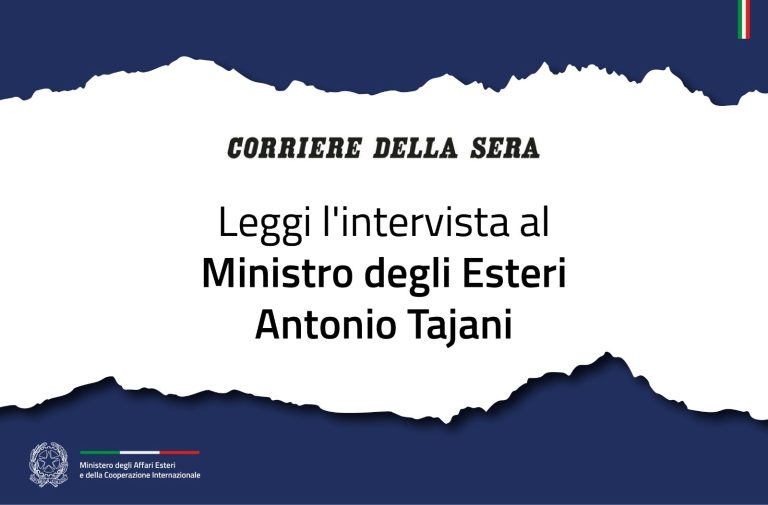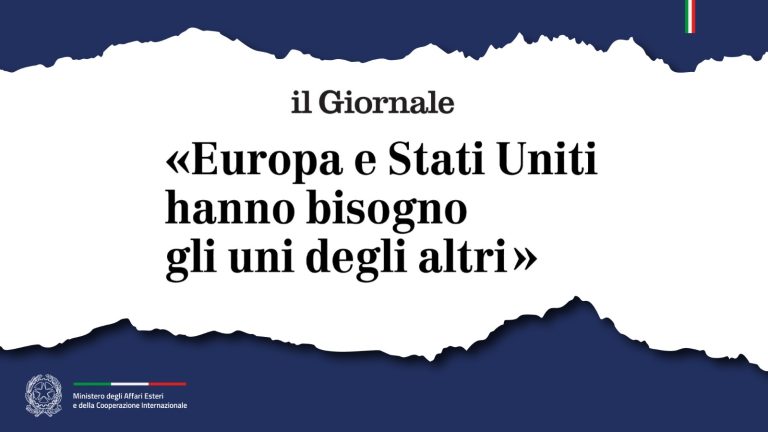Rome – Antonio Tajani, Minister of Foreign Affairs and International Cooperation: after the attack on Israel on 7 October, a domino effect has been triggered throughout the Middle East. Now it’s Syria’s turn.
“The Hamas terrorist attack on Israel has sparked a fire in the Middle East that the Italian government, in these months of the G7 presidency, has also tried to keep in check in order to encourage the relaunch of the political process throughout the region. Now the flare-up in Syria: Assad fell because his regime was held up only through the support of Hezbollah and Iran, weakened by the confrontation with Israel. Russia itself, which has powerful fighter jets in Syria, has shown itself to be too busy on the Ukrainian front.”
What do you expect now?
“On Syria now, the first commitment is the security of our Italian nationals, while at the same time, we must understand how to operate politically, not losing sight of the form the country will take in the future. However, on some points we are firm, and on this there is also agreement with the Turkish Foreign Minister Hakan Fidan, with whom I have spoken on the phone: integrity of the country, protecting the population and safeguarding religious and ethnic minorities, also to avoid a migratory collapse.”
We had just sent an ambassador to Syria.
“Syria is located right in front of us, it is in the Mediterranean, every earthquake in that country has repercussions on our security and the security of our allies. We cannot stand by the window and watch. And with us all of Europe. We are at the forefront of support for the civilian population: this is why two weeks ago the government sent an ambassador, certainly not to support the regime, and in fact he did not hand over his credentials to Assad.”
What does Italy expect?
“The Syrian people want to take a path of freedom. It is important that the transition is peaceful and that there is no violence, that the country remains united and does not fall prey to terrorists who may want to take advantage of this phase.”
Do you see any Italian nationals in danger?
“Since the beginning of the crisis, I have maintained constant contact with the ambassador. A mission that is more delicate in the current circumstances but what is even more important is to keep an active channel of communication and knowledge open. In such a fluid context, the utmost caution is important, which is why we are inviting everyone to stay at home: there are gangs of criminals in action. Yesterday some armed men entered the garden of the ambassador’s residence and stole some cars. Ambassador Stefano Ravagnan and the Carabinieri are safe, but they continue to work for our Italian nationals: only the other night about fifteen Italian nationals arrived in Lebanon, led by the embassy, and the others are followed by our diplomats. I repeat: the protection of Italian nationals is the first mission.”
In Syria there are many Christians. How are you going to protect them?
“The Italian government is mobilised: since 27 November, when the action of the militants began, we have been in close contact with the Apostolic Nuncio in Damascus, with the members of Christian religious orders present in the country, with the Holy See itself. When the Terra Sancta College of the Franciscan friars in Aleppo was hit by the Russians, I spoke to Father Custos Patton and then I told our ambassador in Moscow to ask the Russian Foreign Ministry to direct their attention to it. The Apostolic Nuncio in Damascus, Cardinal Zenari, reports that for the moment the rebels are fulfilling their promises. I have also spoken about it with the Turkish Minister Fidan, he assured me of his commitment to ensure that the rebels maintain a respectful behaviour.”
Do you fear a wave of refugees is coming?
“This is not a secondary issue for us, the EU and first and foremost for the Arab states in the region, starting with the tormented Lebanon. A situation of prolonged uncertainty, chaos or slipping into extremism would certainly have a very serious impact. We want a Syria that is finally free and pacified, we will help it as Italy and as Europe to start a reconstruction that has been anticipated for too many years. But we ask for guarantees from whoever will govern the country, and we will do so together with all the Arab countries in the region.”
Assad was a dictator, but what can we make of the Islamic militias that are now taking power?
“The rebels who deposed Assad are a very wide galaxy, the expression of a people who have been oppressed by a brutal dictatorship for too long. The risk of extremism and a return of ISIS must be avoided, as Italy and as Europe, we are at the forefront of promoting political dialogue and transition. We are talking to all Arab partners who will play a crucial role.”
As president of the G7, what line does Italy indicate?
“Teamwork is crucial: the G7 is on the front line, but the number of countries with which to collaborate must be expanded as much as possible. The EU plays a fundamental role, I have talked about it with the new European Commissioners and with the High Representative Kallas, the United Nations also has a crucial role to play. Syria is one element of a powerful crisis that we cannot disregard.”





